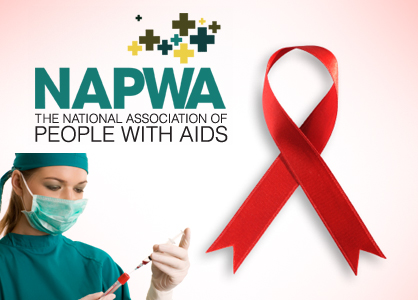HIV Testing Day: ‘Take the test and take control’
D. Paul Gordon believes he contracted HIV by being “too trusting.” His partner knew he was positive, but didn’t share his condition with Gordon. Having faith in his partner, Gordon tragically chose not to use condoms during their sexual relations.
“I always felt that it would be someone else and not me,” he described. After being diagnosed, he told himself: “You are one of them: a statistic and just another number.”
He was full of anger, fear and confusion, and didn’t know where to turn. Worried about the stigma frequently attached to having HIV, he did not immediately seek care when he moved back home, until a doctor advised him he would die if he didn’t. Today he is a testing advocate with the National Association of People with AIDS, sharing his own story to help save others from the fate that befell him.
His advice: “It’s better to know than not to know until it’s too late. Get tested and always ask questions.”
Half a million American lives have been lost to AIDS already. This deadly disease can affect any one of us, especially if we’re not informed. So celebrate HIV Testing Day – June 27 – by getting tested and raising awareness.
Members of NAPWA who were living with AIDS founded National HIV Testing Day in order to prevent others from being infected. On this day, health departments and community groups come together to hold free testing events to encourage people to know their HIV status.
Consider the facts: 25 percent of HIV positive people in the U.S. are unaware they are living with the virus, and an estimated 56,000 more Americans will be infected with HIV each year. Out of those living with the virus, African-Americans and gay men are both disproportionately represented.
“If (people) test positive, they should be connected to quality care immediately,” Frank Oldham Jr., president and CEO of NAPWA, said. “If it is negative, we want it to stay negative, and be aware of how to prevent themselves from getting HIV/AIDS using condoms, risk reduction behaviors and all those things.” Either way, he pointed out, you should want to know.
Who should get tested? Everyone, Oldham said. Oldham recommends getting tested at least once a year, and more often if you are more sexually active. If you are concerned about recent contact, seek help immediately.
HIV (Human Immunodeficiency Virus) attacks and damages the immune system, making the individual susceptible to a range of illnesses and infections. It is present in the body’s fluids – including blood and sexual fluids—and is therefore spread from fluid to fluid contact. The two major ways to contract HIV are from unsafe sex, or unsafe drug use, such as sharing needles. It cannot be spread from casual contact.
HIV causes AIDS (Acquired Immune Deficiency Syndrome), which is marked by serious destruction to the immune system and low T-cell count (a type of white blood cell that the immune system uses to fight disease).
While there is treatment for these conditions, and diagnosed people are now living longer, both HIV and AIDS are still fatal. There is no cure or vaccine at this point. The sooner you know you are positive, the better: The longer the virus is left untreated, the more it will damage your system.
“The numbers (of infected people) continue to grow,” Oldham revealed. “The new medications – that we are very hopeful and optimistic about them – do not save lives forever. So we constantly have to get new medications, new treatments and research.”
While available treatments make a huge difference, don’t be fooled into thinking that HIV is not a serious disease.
“One of the major misconceptions of HIV right now is the new treatments are simple,” Oldham noted. “People take more risks now because they believe they can just get treated and that HIV is like a cold and it will go away. That’s not true.”
Since there is often a social stigma attached to HIV, people will not go and get tested, Oldham, who has HIV himself, pointed out. “There is a lot of stigma that makes it difficult for us to have full lives and to have disclosure status. If people are afraid of the disease, afraid of people living with HIV, people are less likely to say, ‘I’m a person living with HIV/AIDS,’ and that means you won’t know if someone has the virus or not.”
Founded in 1983, NAPWA, the nation’s oldest AIDS organization, is based on the Denver Principles, which declare that people who have the virus have the right to be treated with dignity. The organization serves as the voice for the 1.3 million Americans living with HIV and AIDS, working to end suffering from the AIDS epidemic by advocating for the lives and rights of all infected and affected by the disease.
“We are not victims. We are not patients. We are people living with AIDS, people who deserve full lives,” Oldham explained. “We need healthcare and treatment and deserve equal rights.”
He reported that we have moved from an American president who wouldn’t say the word “AIDS” (Ronald Reagan) to a president who has launched a national AIDS strategy (Barack Obama).
“So we are making progress, but there is still a lot of work to be done,” Oldham said.
For more information about testing, how to protect yourself or how to support NAPWA, visit www.napwa.org.
Has your life been affected by HIV? Share your story with us.
Tagged in: lux exclusives, nonprofit, philanthropy, aids, hiv, national association of people with aids, napwa, hiv testing day, hiv testing,

Purple Neon/LadyLUX via NAPWA, istock



